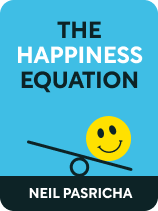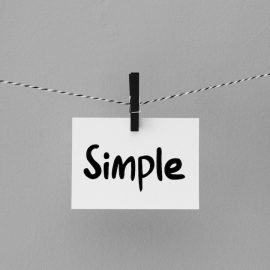

This article is an excerpt from the Shortform book guide to "The Happiness Equation" by Neil Pasricha. Shortform has the world's best summaries and analyses of books you should be reading.
Like this article? Sign up for a free trial here .
Do you feel like you’re always doing something but barely getting anything done? In other words, are you busy but not productive?
Many people feel like they are busy all the time but they don’t see the “products of their business.” This is because there is a fine line between being busy and being productive. Being busy but not productive is a sign of either inefficiency or poor time management.
Here’s how being busy (but not productive) eats away at your mental energy and what you can do about it.
Wasting Mental Energy
Overdoing coupled with overthinking leads to mental exhaustion and dissatisfaction. It’s easy to fall into the trap of always being too busy with a never-ending to-do list, both at work and at home. Though you’re constantly multi-tasking and running to catch up with all of your chores and obligations, you never feel like you’ve done enough. In the midst of all this multitasking, you’re making hundreds of unimportant decisions, such as choosing whether to start an email with “Hi” or “Hey.” According to Pasricha, all of this doing and thinking wastes a vast amount of energy and prevents you from relaxing and feeling happy.
(Shortform note: Pasricha’s claim that you waste a vast amount of time on unnecessary decisions isn’t an exaggeration. Research suggests that the average adult makes 35,000 decisions a day. That equates to over 2,000 decisions each waking hour, or 34 decisions each minute.)
Solution: Minimize Trivial Tasks and Decisions
Reserve your energy for things that matter to you. Pasricha claims that removing the burden of trivial tasks and decisions reduces feelings of stress and fatigue and increases physical and mental energy. This additional energy improves your ability to focus on what you want to achieve, your motivation, and your levels of productivity and creativity. As a result, you make progress on your goals and have the energy to spare.
If you are constantly busy but not productive, you’re probably spending much of your time on trivial tasks that yield little benefit. Pasricha suggests five methods to reduce the toll of trivial tasks and decisions and increase mental energy:
Method #1: Establish Routines for Regular Tasks
Pasricha suggests restricting time spent on regular tasks by automating as much as possible and creating routines and tight schedules for everything else. For example, if you currently check your blog stats multiple times a day, automate this task by opting to receive a single notification once a day. Alternatively, check your blog stats at a specific time each week instead of multiple times each day.
Method #2: Cut Unnecessary Decisions
Write down all of the decisions you make in a day and consider which ones are insignificant wastes of time and energy. According to Pasricha, a decision is “insignificant” if the outcome doesn’t increase your happiness or contribute to your goals. Then, come up with ways to remove the necessity of these decisions. For example, deciding to eat the same breakfast every day saves time and energy each morning and every time you go to the store.
Method #3: Avoid Multitasking and Limit Distractions
Your brain can only focus on one thing at a time. Switching between tasks or giving in to distractions uses up mental energy and slows down productivity. Therefore, Pasricha suggests focusing on one thing at a time and limiting potential distractions to get more done in less time. For example, switch off your phone and email alerts until you complete your task.
Method #4: Set Early Deadlines
Pasricha argues that giving yourself more time to accomplish a task only gives you more time to waste—you feel no sense of urgency, so you procrastinate. In contrast, giving yourself less time to complete something increases your motivation and encourages you to prioritize what you need to do to achieve your goal efficiently.
Method #5: Build Momentum on Tasks You’re Avoiding
There are always going to be things you have to do but don’t want to do due to a lack of confidence or motivation. Avoiding these tasks doesn’t make them go away. Rather, your procrastination incites feelings of fear or guilt because you’re constantly thinking of what you should be doing. These negative feelings then make the tasks seem more difficult than they are.
According to Pasricha, forcing yourself to start these tasks reduces their mental toll and improves your confidence and motivation. While starting a task initially requires overcoming reluctance, taking action leads to progress that affirms your ability to get the task done. Building momentum on the task feels so good that it makes you want to complete it.

———End of Preview———
Like what you just read? Read the rest of the world's best book summary and analysis of Neil Pasricha's "The Happiness Equation" at Shortform .
Here's what you'll find in our full The Happiness Equation summary :
- How to overcome the four common obstacles to happiness
- The five methods to reduce the toll of trivial tasks and decisions
- Why you need to stop chasing external validation






